The Future of Sex
We believe we're at an inflection point in the sexual wellness and sextech industry, that’ll unleash a wave of innovation in one of the most universal parts of the human experience.
We have sunsetted the AfterWork Ventures Substack. The original post can be found on our website here.
Over the centuries, humans have oscillated wildly between sexual liberation and sexual repression.
The Ancient Egyptians were sexually tolerant - things like premarital sex, children born out of wedlock, and equal rights for divorce were the norm. The Greeks were equally liberal - eroticism and fertility were baked into foundational mythology. The Etruscans had burial ceremonies that included sex rituals and concubines regularly attended meals.
The Victorians, on the other hand, swung back to sexual repression: table legs were considered a wicked temptation and had to be covered up. This conservatism also applied to homosexuality, promiscuity, and sexual expression.
In the 1960s, sexual liberation returned with a vengeance, driven in part by the advent of the contraceptive pill.
Since then, we’ve toggled between repression and conservatism, albeit with a trajectory towards liberation; accelerated by the sexual wellness movement. Today, sex is having a moment. We try to steer clear of puns, but there’s no other way to say this - the sex industry is exploding 💦.
The two big drivers of growth are sexual wellness and SexTech. Sexual wellness is an evolving term that encapsulates sexual hygiene, relationship health, safety, sex education, and erotica. The sexual wellness industry was worth $62 billion1 in 2020 and is forecast to exceed $125 billion by 2026. Meanwhile, the SexTech industry - defined as any product, software or platform that enables and enhances sexual experiences - was worth $50 billion in 2020 and is growing at an annual rate of 30% (to put that in perspective, drone manufacturing only grew by 20% last year).
Until recently, raising capital was hard to do in such a controversial space. But thanks to the sexual positivity movement - which aims to remove stigma, shame, and taboo - perceptions are changing, and investors’ money is following. This is an important inflection point; until now, many entrepreneurs were forced to crowd or self-fund, which noticeably hamstrung innovation and adoption.
What changes are afoot?
Sex is stepping out!
The sexual positivity movement is all-embracing - it’s for all shapes, sizes, orientations and preferences. In this new paradigm, there’s no shame or discrimination - everyone has a right to pleasure.
There’s been a proliferation of companies spearheading this wave, like Bumpn who design sex toys for people with dexterity limitations, and Vibio who make hands free vibrators.
At the same time, sex-positive content is burgeoning; with celebrities often used to crack the mainstream. For example, Lora Dicarlo worked with Cara Delevigne, WOW Tech co-created a product with Lily Allen, and Maude partnered with Dakota Johnson to help share their messages of sexual inclusion. These celebrity collaborations are key, as traditional media often refuse to run ads for sex businesses.
Sexual wellness is becoming recognised as a key pillar of health
Pleasure is the new self-care; Sexual pleasure is increasingly recognised as an unsung contributor to overall wellness and has moved from a male-dominated guilty pleasure to a female-driven wellness staple.
The sexual wellness movement puts sexual prowess and confidence at the centre of our relationship to our bodies. This is in contrast to the depiction of confidence and empowerment promoted in the 1980s, which looked something like working out on an elliptical, losing weight, gaining sexual confidence, and then landing the job, partner, or life of your dreams.
Fortunately, the narrative has evolved. There are now narratives that encourage us to own and explore our innate sensuality and sexuality, and unlock new levels of confidence and magnetism. There’s also been an increasing recognition of our body’s capacity for sensuality - increasingly the body is seen the body as one big sex organ, capable of arousal from all senses, stimuli, and interactions.
Bringing sex into the digital realm
Technology has been a key accelerant to the sex renaissance we are experiencing. SexTech includes everything from connected devices, sex virtual reality, sex bots powered by AI and machine learning, and platforms secured by blockchain.
As is on trend for 2022, sex metaverses are on the rise. These worlds invite people to experience all the pleasures of the flesh through their own avatar. Sex positive virtual spaces, like Raspberry Dream Labs has built a safe platform to explore and experiment. This has enabled digisexuals (people who prefer interacting with digital versions of sex) to come into their own; and we’ve seen sex detach from partnered sex. To serve this group, countries such as Japan and Canada have brothels which exclusively offer sex dolls.
Blockchain technology is also solving important jobs to be done, such as privacy, anonymity, and control. Some common painpoints experienced by sextech founders include being deplatformed by platforms such as Facebook and YouTube, and even payment processors such as Visa. Blockchain’s decentralised nature means that no one can be deplatformed for ‘violating standards’; and permits anonymity will still facilitating ownership of content.
Normalising sexual health
As we get more comfortable talking about sex, we get more comfortable talking about personal care and hygiene fundamentals; from vaginismus (an involuntary tensing of the vagina that can cause significant pain during sex), to UTIs and thrush infections, to sexually transmitted infections, to prolapse (a ‘falling out’ of the vagina, that can occur after childbirth).
We’ve seen a mainstreaming of products that improve sexual health, like the OhNut, which helps alleviate the pain some women experience during intercourse, Elvie an device that helps with pelvic floor training, or HoneyPot, who make feminine washes, wipes and lubricants that you’d be proud to display on your counter.
We hope that the more we see sex as a right and not as a sin, the easier conversations about sexual wellness will become and the earlier they’ll happen.
Realistic sex education
For too long, young people have gotten their sex education from porn - internalising dangerous expectations such as extreme flexibility, huge penises, and non-stop orgasms.
There’s now an emergence of educators that aim to provide a more realistic and holistic sex education - sites like MakeLoveNotPorn show real people having sex and O School, and Normal’s 120 minute long Modern Guide To Sex is hosted by sex coach Georgia Grace, and runs through everything from tips and tricks to level up your pleasure skills, techniques to improve communication with your partner(s), and practical exercises designed to help you explore better sex.
Positive masculinity
Male identity and sexuality have had a somewhat fractured relationship. Too often, men are casually portrayed as sex-hungry, confident, and charismatic stars in the bedroom. This idealised image is not reality; and the chasm between these depictions and what men feel capable of leaves them riddled with anxiety and depression. Research shows that men’s mental health and sexual health are inextricably linked. What’s more, men are less likely than women to seek help on sexual issues.
To help promote healthy conversations and spotlight healthy relationships with sex, organisations like DudeBuddha are stepping up. This community is run by volunteers and shares conversations on intimate topics from porn addiction to premature ejaculation.
Infrastructure and rails built for the industry
Society’s conservatism has at times made it difficult, if not impossible, for sex businesses to conduct their business operations. For example, many payment processors (including Stripe and Paypal) don’t accept businesses in the ‘adult industry’ - and won’t even let them open a bank account! These roadblocks were ostensibly put in place to prevent sex trafficking and obscene content, however the blunt approach has hampered innovation and entrepreneurs genuinely trying to develop and improve our understanding of sex.
Cindy Gallop, Funder of MakeLoveNotPorn, the world's only user-generated, human-curated social sex video-sharing platform, talks about the struggles she has had accessing basic infrastructure:
Despite these challenges, Cindy has refused to choose a fake anodyne name to open her bank account against. Instead, she’s fought to get “MakeLoveNotPorn” on her chequebooks and bank statements - a battle that took four years.
Fortunately, people ate stepping into the gap left by traditional financial institutions. As well as payment gateways and financial services, we expect to see more infrastructure tailored for the industry, such as web hosting services and email marketing platforms.
Who will win in this opportunity space?
Inclusivity at the core
We believe companies built around the need-state of inclusion will set themselves up for long term success. Inclusion doesn’t just extend to gender and sexual preferences, but also body shapes, sizes, kinks, and overall definitions of sexual attraction. We admire pioneers such as Buck Angel, a porn star who launched his own sex toys for trans men.
Other players include SkiiMooTech which create VDOM, a bluetooth enabled genital prosthetic designed for queer women and trans men, and Enby, who supports gender-affirming products for trans and non-binary people.
E-commerce platform Spectrum Boutique has removed gendered language from its website and arranges its products by toy type (not gender) to extend an invitation to all.
Making intimacy portable
Perfect for long-distance lovers, connected devices that let your lover control your vibrator from afar have surged in popularity. In 2021, there were 36 million connected sexual devices used globally - an 87% growth from the previous year; the market is projected to grow from $3.8 billion in 2020 to $9 billion by 2025. As millions of partners were separated by COVID and its associated border closures, these devices helped couples find ways to connect intimately from afar.
Not only are these devices connected, they’re increasingly real. For example, Lola Di Carlo is creating toys that can recreate the warmth of human touch and also uses thermally conductive plastic to simulate blood flow.
Building erotic intelligence
COVID piqued out collective sexual curiosity. As a population, we bought more sex toys, masturbated more, and our Google searches for ‘sexual positions’ and ‘fetishes’ created a hockey stick graph that would make a VC 💦.
There’s a palpable desire for experimentation and exploration, but less understanding of how to get started. There remains a lack of information and educational content when it comes to sexual discovery - not to mention shame and stigma. As such, we’re big fans of companies that adopt a ‘coaching’ mindset - irrespective of what they are selling. In particular, we’re excited by companies that unlock people’s erotic intelligence - being in touch with your mind, body, and values as it relates to sex. In essence, erotic intelligence means building your understanding of your sexual preferences and boundaries, and having the confidence to act on them.
Brands already helping people on this expansive journey include Ferly who teaches mindful sexual practices through guided exercises, Dust who uses chatbots to teach people the art of the sexting, or Coral who uses coaching techniques to help people get to know themselves intimately.
Thoughtful, human-centric design
Regrettably, many sexual devices have not been designed thoughtfully. Rather, they are mass-produced plastic moulds, bolted onto a feature such as Bluetooth. As a result, sex devices are prone to security breaches.
In a comical and perhaps extreme example, there was a security vulnerability in Cellmate, a smart and connected male chastity belt. The device is meant to be locked and unlocked remotely by a partner, but hackers got in the way! The hackers locked the belts remotely; meaning hundreds of men had to resort to cutting themselves out of chastity belts with heavy-duty bolt cutters or angle grinders.
This hack was the work of the Internet of Dongs; a site is dedicated to collectively hacking sextech devices, and sharing their vulnerabilities. In the future, we hope to see more thoughtfully designed devices, which put the customer’s needs at their core.
Making sex safer
Blockchain mechanisms have unlocked the ability to report sexual abuse anonymously and privately, and warn others of bad actors. For example, Leda Health leverages the Ethereum chain to make it easy for survivors of sexual assault to order and submit DIY evidence collecting kits after a sexual assault has occurred, while Smashboard and VaultPlatform use blockchain to allow survivors to report sexual harassment or abuse privately, and stores details and evidence securely.
Who is currently making waves?
There are already companies starting to make waves in the sexual wellness sextech around the world. Here are just a few:
Wearables and devices
Wisp is a sex wearables company that is turning sexuality into sensuality; moving the conversation away from orgasms and genitals to a whole body affair. They are research driven and sensuality led, with products like perfume orbs and massage stones designed to heighten sensuality.
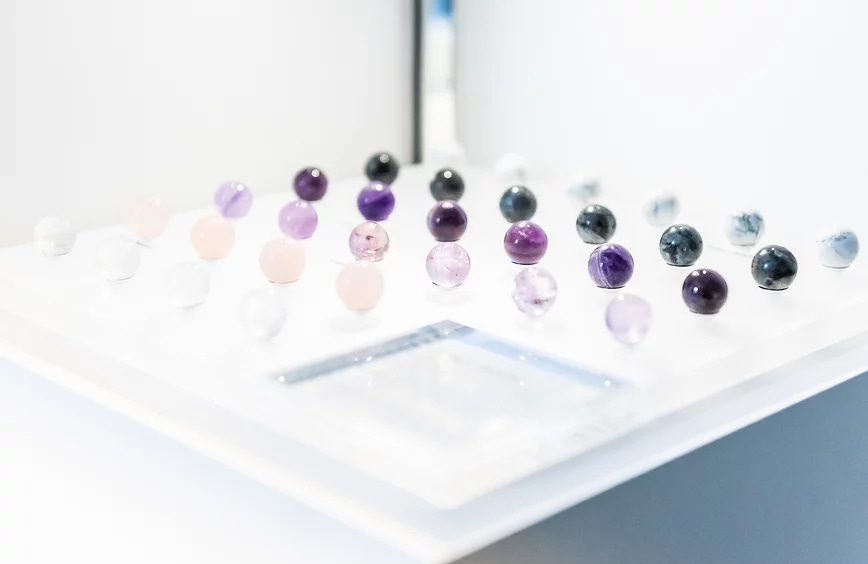
Normal - This Aussie startup describes its mission as normalising healthy conversations about sex and “supporting the first generation to explore sexuality without shame”. The brand launched in 2021 with a premium eCommerce offering, and has recently expanded into online sex education, with video course The Modern Guide to Sex. Normal is best known for its unique brand voice and bold, unapologetic marketing moves:
Digital platforms
Exolover is a platform allows users to create an avatar, add ETH to their Lovers Balance, and begin their exploration. Users digital avatars, users can enter rooms and browse sexual content with a stranger, or create private rooms and invite people they know. Different rooms have different price tags, entry points, and content available. Like with most gaming and blockchain models, the more you play, the more you earn. Exo is also experimenting with “See It, Feel It” technology. This means whatever content you watch on screen will synchronise to your sex toy, for a more immersive experience.
Dipsea is capitalising on the rise of audio content, creating short, sexy audio stories that spark your imagination and get you in the mood. Dipsea is a female-founded studio, and is committed to making content that is relatable, feminist, and uplifting. The founders recognised that readings devour romance novels, and brought this alluring content to a new modern platform.
Lips is a social media platform that is unfiltered, uncensored, and free of trolls. This social media platform encourages women-identified and LGBTQIA+ creators to share, connect, and express themselves sexually. Lips got its foothold by inviting sex workers, sex educators and activists and adult content creators to find a safe space. Here, they cannot get censored and de-platformed - which which all to many sex creators have experienced on traditional social media sites.
Similarly, Sunroom is a sex-positive content platform where women are actively encouraged to monetise their sexuality, beauty and self-expression. Founders Lucy Mort and Michelle Battersby chose the name as they wanted to replicate the feeling of a warm, safe space where people can be fully seen.
Sexual education
OMG YES is a series of video tutorials designed to enhance female orgasms, all underpinned by science and research. The content shares a series of practical techniques designed to enhance clitoral pleasure - either during solo or couple play.
AfterGlow XO combines ethical porn with sexual wellness exercises, education and advice. Founder Lilly Sparks recognises that many get their sex education through porn, and is our to change this: “The porn you’ve been waiting for is here. It’s ethical. And it’s sexy as fuck.” Their pay-what-you-want model helps to democratise this critical education.
All Bodies is an education platform is designed to help deepen your connection with your body. It brilliantly self-describes as ‘wellness classes on all the stuff you’re Googling in your private time’. With class titles like How the heck to have a threesome” setting sex life goals and intimacy after trauma, the curated content is designed to empower people and raise their erotic intelligence.
Critical infrastructure
Sextech School addresses lack of critical infrastructure in the sex industry, by bringing together innovators have a brilliant idea ready to get off the ground, but may lack access to capital and connections. Founder Bryony Cole says, “We want to be able to take away the stigma about building a sexual wellness or sextech business, and start talking about and solving the very real issues like censorship and payment gateways that prevent these entrepreneurs from thriving”.
Spank Chain is a crypto payment platform for the sex industry, and touts itself as the easiest way for models and merchants to get paid. This is a huge boon for sex workers, many of whom have been blocked by most mainstream banks and credit cards. This blanket ban has meant performers are forced onto a handful of adult platforms that charge exorbitant fees and have strict rules; SpankChain is out to democratise payment rails.
Callisto is designed to help reporting of on-campus sexual assault, and uses blockchain to encourage anonymous disclosures. It was built by survivors for survivors and is a community-driven approach to minimising and preventing sexual violence.
Our predictions
10 years from now
In ten years, we predict that sexual wellness and expression will continue to be normalised in everyday conversation, and sex businesses will really start to hit their stride. We’re anticipate we’ll see the best sex startups grow into unicorns, and even become some of the most valuable companies in the world.
As critical infrastructure, funding, partnerships, and talent become easier to secure, we also think competition in sextech will increase. Companies will have to work hard to find true differentiation, and earn their staying power through delighting customers. As in many industries, we predict we’ll see an initially fragmented market consolidate, as companies and brands try to cater for all of their consumers’ sexual needs, rather than addressing particular niches or moments in time.
Here are some other predictions for the next ten years:
We will see the number of digisexuals increase; and companies that can help us bridge our virtual sex lives and real world sex lives will take off. Sex in a metaverse, through audio erotica or AR/VR simulations will become normalised and seen as another way we can experience pleasure and live out our fantasies.
Improvements to sextech and the continuing normalisation of connected sex toys, will unlock our ability to date and be intimate across physical distances, making long distance relationships more viable and expanding our dating pools.
Like every other piece of technology in our lives, our sex toys will get smarter and more responsive - perhaps driven by their ability to capture biometric data, such as breathing and heart rate. Armed with this intel, they will be able to learn sexual preferences and respond accordingly. Maybe they’ll become better than humans at creating sexual pleasure…
As we gain more erotic intelligence as a society, we’ll find new ways to refine and evolve our preferences. We will introduce the concept of sexual wellness at a younger age, empowering sexual exploration in the open, guided by better educational resources than pornography.
We’ll have devices helping us track our sexual health and wellness and work towards our sex goals in real time. These will feel as normal as an Apple Watch or Oura ring, and come with in-built coaching.
But it’s not all sexbots and orgies in the metaverse. At its best, tech is about helping us meet our deepest human needs. We believe tech that solves true customer painpoints and help us build more meaningful connections (to ourselves, and to others) will ultimately have the right to win.
50 years from now
Predictions about further futures are always part titillating, part dystopian, and entirely speculative. Here are some of ours:
In a more liberated world, people will be as comfortable publicly identifying as a sex content creator as they currently are identifying as a fitness content creator. We’ll no longer pretend not to know pornstars by name, but be proud of the sex coaches and influencers we follow. The mainstreaming of sex content will also draw talent into this space, and we expect to see higher quality content serving all niches.
Immersive VR experiences will become available, moving sex beyond a physical act into the realm of satisfying intellectual and spiritual needs. Bryony Cole elaborates: “Imagine being in an immersive experience like VR and having sex with the universe - combining the best of human's imagination with the capabilities of technology”.
Our increasing comfort with sex will also lead to an increase in omnipotent sensuality: where sensual and sexual experiences blend between real world and digital experiences, and even beyond the embodied experience of being in one body, at one point in time.
Of course, our views are predicated on an assumption that we won't oscillate back to a culture of repression. Overall, this article has taken a Western-centric view on the future of sex; without fully acknowledging that the sexual renaissance we are experiencing in some parts of the world is being met with resistance in others. Sadly, the desire to exert control over other people's bodies has always existed; and is hard to overcome. For instance, in some countries, expressions of gender fluidity are being actively crushed in service of the prevailing belief that traditional gender roles enable a safer and steadier society.
As such, we anticipate the evolution of the sex industry will become a point of tension between countries and cultures; and sexual liberation, as it always has, will have a political dimension. In this context, we’re excited to see pioneers in the industry harness their creativity and forge the path towards greater connection, empowerment, and erotic intelligence.
Enjoyed this edition of AfterWork reading? Subscribe for weekly content that shares our perspectives on how the world is evolving, and how investors and founders can ride the wave.
All currencies are in USD.




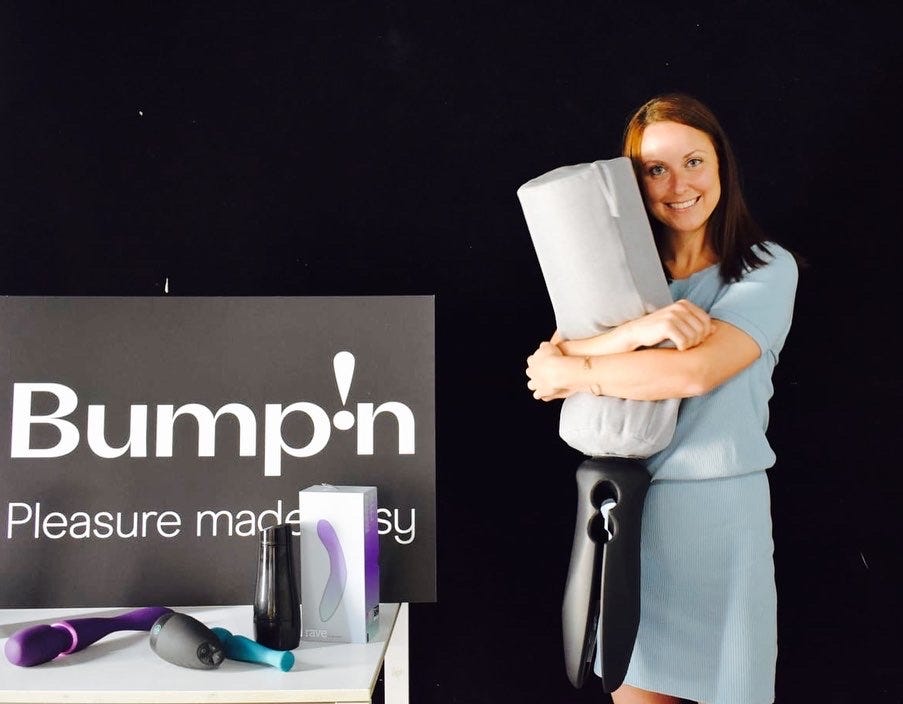


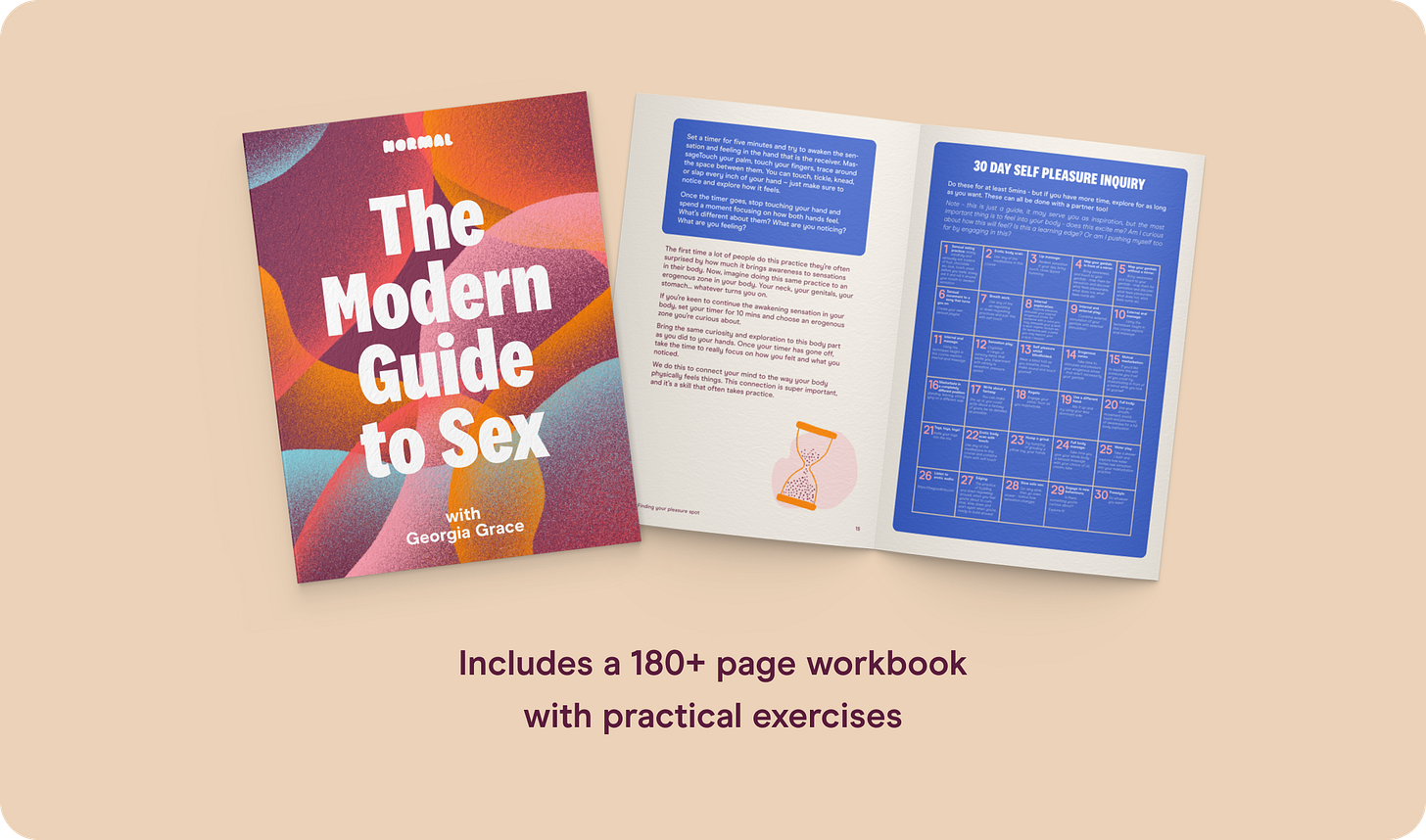

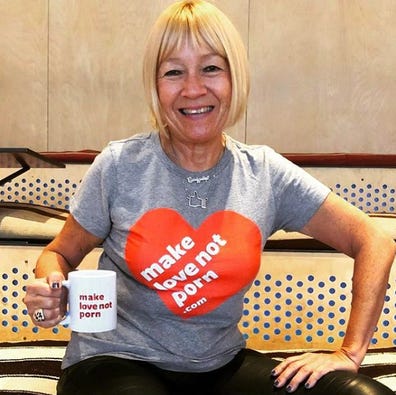
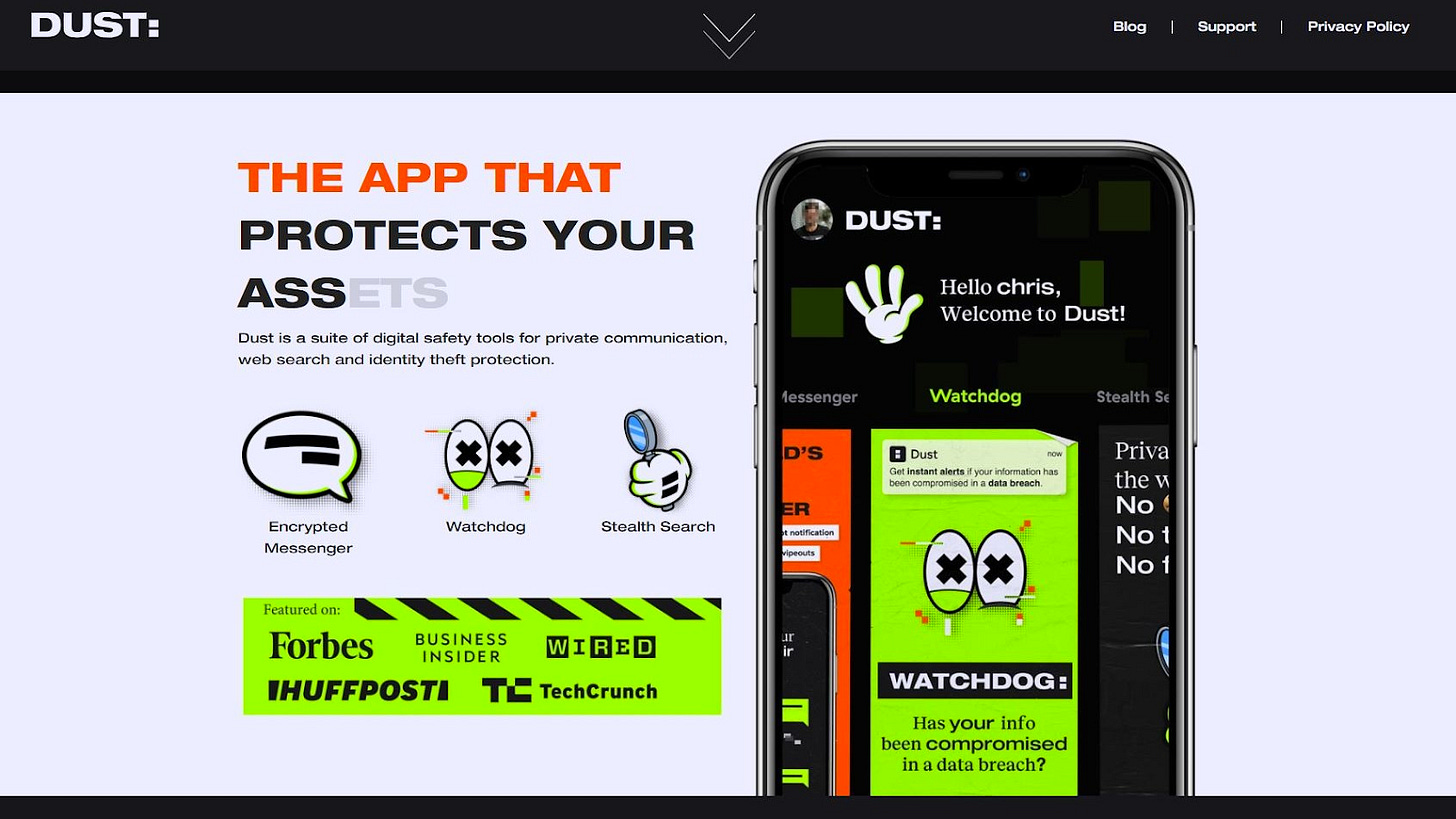


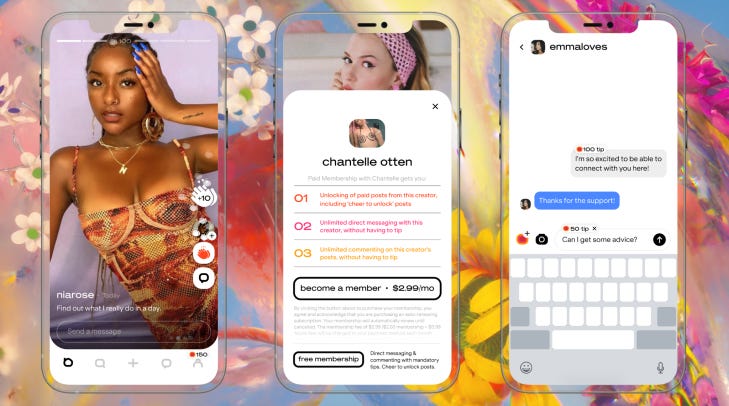
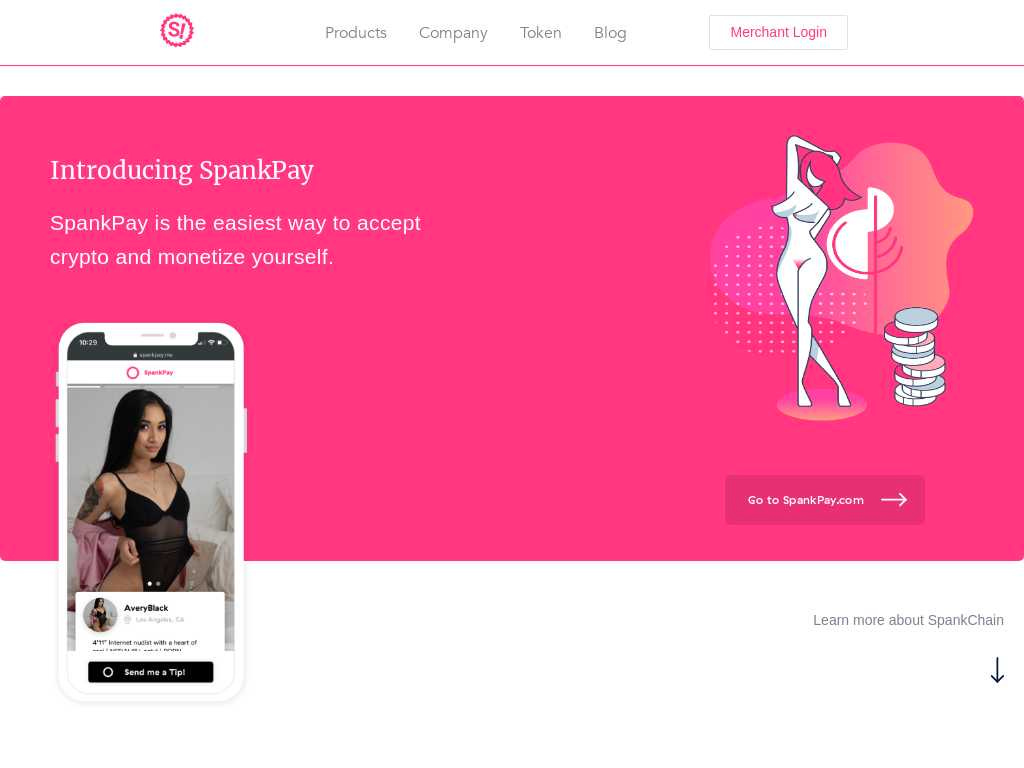

Thanks for this great overview of sextech and for featuring me and MakeLoveNotPorn!